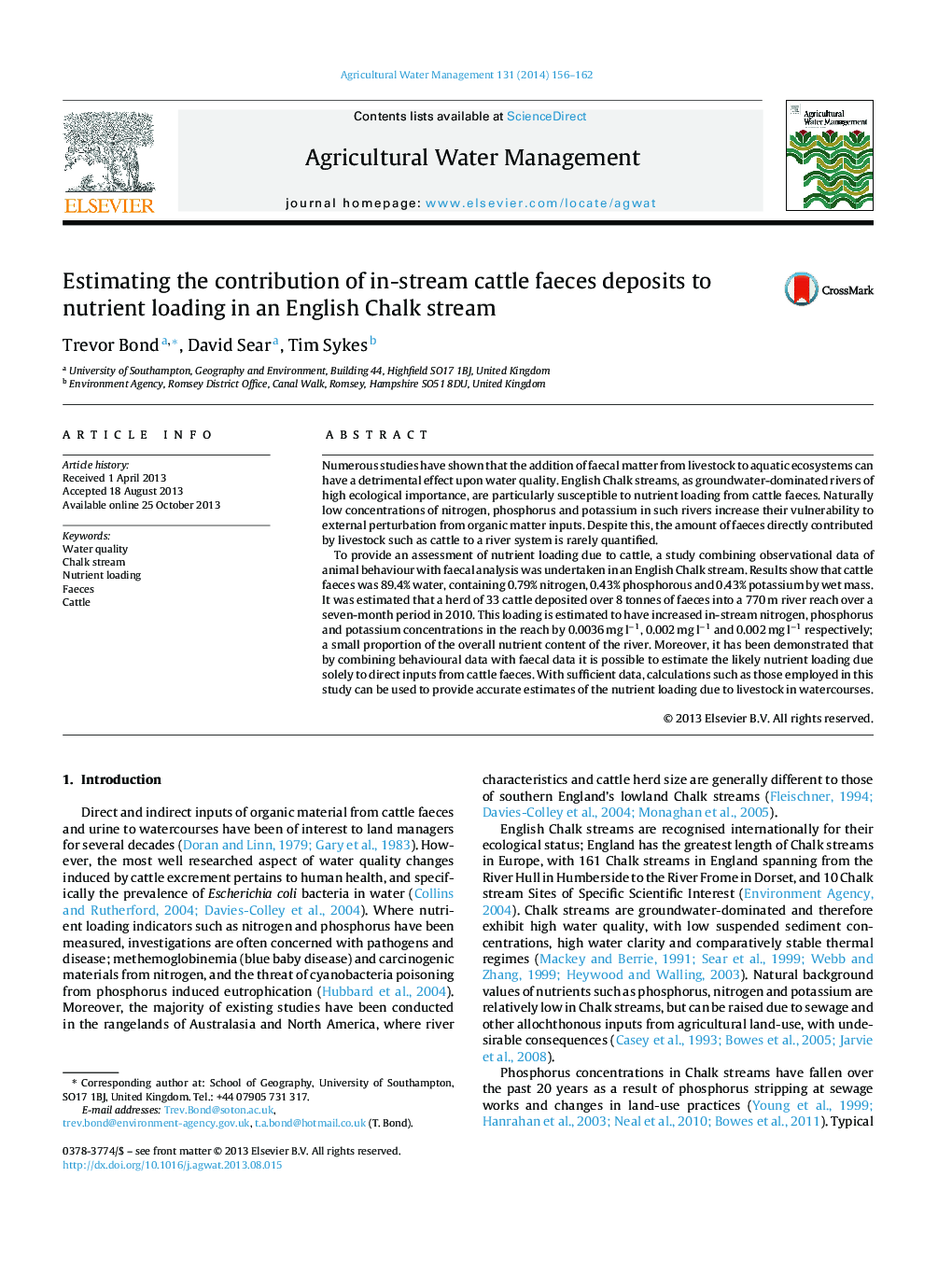| Article ID | Journal | Published Year | Pages | File Type |
|---|---|---|---|---|
| 6364016 | Agricultural Water Management | 2014 | 7 Pages |
Abstract
To provide an assessment of nutrient loading due to cattle, a study combining observational data of animal behaviour with faecal analysis was undertaken in an English Chalk stream. Results show that cattle faeces was 89.4% water, containing 0.79% nitrogen, 0.43% phosphorous and 0.43% potassium by wet mass. It was estimated that a herd of 33 cattle deposited over 8 tonnes of faeces into a 770 m river reach over a seven-month period in 2010. This loading is estimated to have increased in-stream nitrogen, phosphorus and potassium concentrations in the reach by 0.0036 mg lâ1, 0.002 mg lâ1 and 0.002 mg lâ1 respectively; a small proportion of the overall nutrient content of the river. Moreover, it has been demonstrated that by combining behavioural data with faecal data it is possible to estimate the likely nutrient loading due solely to direct inputs from cattle faeces. With sufficient data, calculations such as those employed in this study can be used to provide accurate estimates of the nutrient loading due to livestock in watercourses.
Related Topics
Life Sciences
Agricultural and Biological Sciences
Agronomy and Crop Science
Authors
Trevor Bond, David Sear, Tim Sykes,
